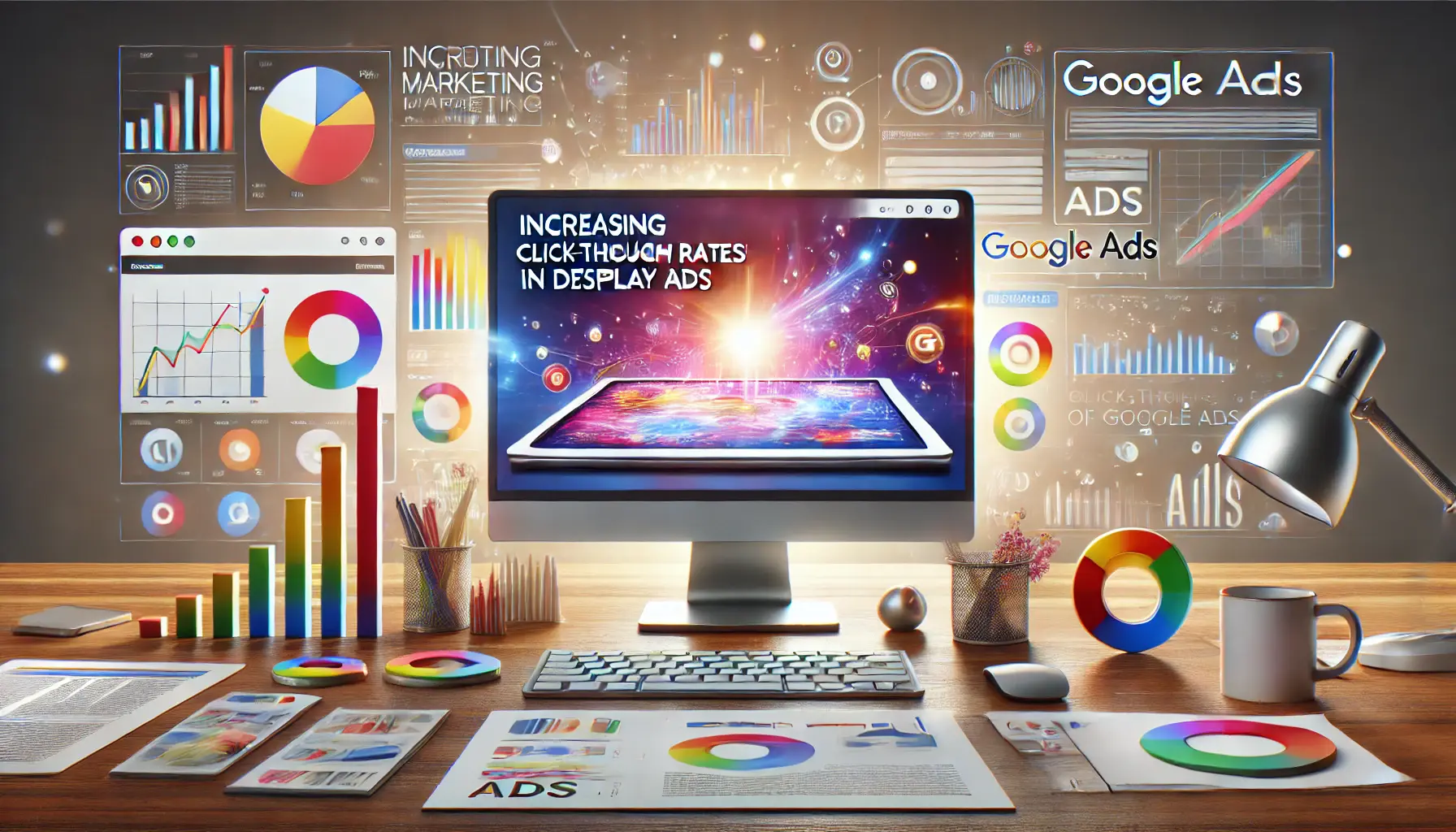In the dynamic world of digital advertising, the quest for higher ad relevance is unending.
Advertisers and marketers constantly seek innovative strategies to ensure their campaigns resonate with their target audience.
One such strategy that has gained prominence is the customization of landing pages to enhance ad relevance.
This approach not only improves the user experience but also significantly boosts the performance of advertising campaigns, particularly within the realm of Apple Search Ads and ad variations.
Ad relevance is a critical factor in the success of any advertising campaign.
It determines how closely an ad aligns with the user’s intent, thereby affecting the ad’s click-through rate (CTR), conversion rate, and overall return on investment (ROI).
By tailoring landing pages to match the specific interests and needs of the target audience, advertisers can create a more cohesive and engaging user journey.
This alignment between the ad and the landing page content is essential for maximizing ad effectiveness and achieving better campaign outcomes.
- Understanding Ad Relevance and Its Importance
- Strategies for Enhancing Ad Relevance
- Measuring and Analyzing Ad Relevance
- Optimizing Landing Pages for Ad Relevance
- Utilizing Technology to Boost Ad Relevance
- Challenges in Achieving High Ad Relevance
- Future Trends in Ad Relevance
- Conclusion: Navigating the Future of Ad Relevance
- FAQs on Boosting Ad Relevance with Custom Pages
Understanding Ad Relevance and Its Importance
Ad relevance is the cornerstone of effective digital advertising.
It refers to the degree to which an ad corresponds to the users’ search queries, interests, or needs.
High ad relevance leads to better user engagement, as the ads are more likely to meet the expectations and solve the problems of the potential customers.
This relevance is measured through various metrics, including Quality Score in Google Ads and Relevance Score in Facebook Ads, indicating the importance of relevance across different advertising platforms.
Improving ad relevance is not just about selecting the right keywords or crafting compelling ad copy; it also involves creating landing pages that provide a seamless and relevant experience for the user.
Custom pages play a pivotal role in this process, as they allow advertisers to present content that is directly aligned with the ad’s message.
This alignment ensures that when a user clicks on an ad, they are taken to a page that closely matches their expectations, thereby increasing the likelihood of conversion.
Key Factors Influencing Ad Relevance
Several factors contribute to the relevance of an ad, including keyword selection, ad copy, and the landing page’s content.
Choosing the right keywords ensures that the ad appears in relevant search queries, while compelling ad copy attracts the user’s attention.
However, the landing page’s content is what ultimately convinces the user to take the desired action, whether it’s making a purchase, signing up for a newsletter, or downloading a whitepaper.
Therefore, customizing landing pages to reflect the specific offer or message in the ad is crucial for maintaining high ad relevance.
Moreover, the user’s experience on the landing page significantly affects their perception of the ad’s relevance.
A well-designed, easy-to-navigate landing page that quickly provides the information or solution the user is seeking will lead to a positive experience.
This positive experience, in turn, increases the user’s likelihood to engage with the brand in the future, demonstrating the direct impact of custom pages on ad relevance and overall campaign success.
Customizing landing pages for ad campaigns is a critical strategy for enhancing ad relevance, leading to higher engagement, better conversion rates, and improved ROI.
Strategies for Enhancing Ad Relevance
To boost ad relevance, advertisers must employ a multifaceted approach that encompasses various aspects of their campaigns.
From the initial keyword research to the final design of the landing page, each step should be executed with the goal of maximizing relevance to the target audience.
Here are some effective strategies for enhancing ad relevance:
Keyword Optimization
Keywords are the foundation of ad relevance.
Selecting the right keywords ensures that your ads are displayed to the right audience at the right time.
To optimize keywords for ad relevance:
- Conduct thorough keyword research to identify terms and phrases your target audience is using.
- Use long-tail keywords to target specific queries and increase the chances of matching user intent.
- Regularly review and refine your keyword list based on performance data to remove underperforming keywords.
Ad Copy Personalization
The ad copy is the first point of contact between your brand and potential customers.
Making it as relevant and personalized as possible can significantly improve ad performance.
To achieve this:
- Write compelling ad copy that directly addresses the needs and interests of your target audience.
- Include the main keyword in the ad copy to reinforce the relevance of the ad to the user’s query.
- Test different versions of ad copy to determine which resonates best with your audience.
Landing Page Customization
The landing page is where the user’s journey often culminates, and its relevance to the ad plays a crucial role in converting visitors into customers.
To customize landing pages effectively:
- Ensure the content of the landing page directly aligns with the ad’s message and the user’s expectations.
- Use dynamic content that can be adjusted based on the user’s location, device, or other relevant factors.
- Optimize the landing page for conversions by making it easy to navigate and including clear calls-to-action (CTAs).
By implementing these strategies, advertisers can significantly enhance the relevance of their ads, leading to improved user engagement and higher conversion rates.
The key is to maintain a consistent message and experience from the ad to the landing page, ensuring that users find exactly what they were promised in the ad.
Incorporating user feedback and performance data into your campaign strategy is essential for continuously improving ad relevance and effectiveness.
Measuring and Analyzing Ad Relevance
Understanding how to measure and analyze ad relevance is crucial for optimizing advertising campaigns.
Advertisers need to leverage various tools and metrics to assess the effectiveness of their ads and make data-driven decisions.
Here’s how to approach the measurement and analysis of ad relevance:
Key Metrics for Ad Relevance
Several metrics can help advertisers gauge the relevance of their ads, including:
- Click-Through Rate (CTR): A high CTR indicates that users find your ads relevant to their needs and are more likely to click on them.
- Conversion Rate: This metric shows the percentage of users who take the desired action after clicking on your ad, reflecting the ad’s relevance to the user’s intent.
- Quality Score (Google Ads): This is a composite metric that assesses the relevance of your keywords, ad copy, and landing pages, offering a direct measure of ad relevance.
Tools for Analyzing Ad Performance
To effectively measure these metrics and analyze ad performance, advertisers can use a variety of tools, such as:
- Google Analytics: Provides comprehensive insights into user behavior on your website, allowing you to track conversions and assess the relevance of your landing pages.
- Ad Platform Dashboards (e.g., Google Ads, Facebook Ads Manager): Offer detailed performance data and insights into how your ads are performing in terms of relevance metrics.
- A/B Testing Tools: Enable you to test different versions of your ads and landing pages to see which combinations yield the highest relevance and conversion rates.
Regularly analyzing these metrics and utilizing these tools allows advertisers to identify areas where ad relevance can be improved.
This might involve refining ad copy, targeting more specific keywords, or customizing landing pages further to better meet the needs of the target audience.
Moreover, staying attuned to changes in user behavior and market trends is essential for maintaining high ad relevance.
Advertisers should continuously update their campaigns based on the latest data and insights to ensure their ads remain as relevant and effective as possible.
Continuous monitoring and analysis of ad relevance metrics are vital for identifying opportunities for optimization and ensuring the long-term success of your advertising campaigns.
Optimizing Landing Pages for Ad Relevance
The optimization of landing pages is a critical aspect of enhancing ad relevance.
A well-optimized landing page not only improves the user experience but also significantly increases the likelihood of conversion.
Here are key strategies for optimizing landing pages to align closely with your ads:
Ensuring Content Alignment with Ads
The content of your landing page should directly reflect the message and offer presented in your ad.
This alignment reassures users that they’ve arrived at the right place and encourages them to take the next step.
To ensure content alignment:
- Match the headline of the landing page with the ad’s headline to provide a consistent experience.
- Use similar imagery and design elements on the landing page as in the ad to maintain visual consistency.
- Highlight the same benefits and features mentioned in the ad to reinforce the user’s decision to click through.
Improving Landing Page Usability
A user-friendly landing page is essential for keeping visitors engaged and guiding them towards conversion.
Improving usability involves:
- Ensuring fast loading times to reduce bounce rates and improve user satisfaction.
- Creating a clear and intuitive navigation structure that makes it easy for users to find the information they need.
- Designing a mobile-responsive page to cater to users accessing your site from various devices.
Personalizing User Experience
Personalization can significantly enhance the relevance of your landing page for each visitor.
Techniques for personalization include:
- Using dynamic content that changes based on the user’s location, browsing history, or device type.
- Offering personalized recommendations or content that aligns with the user’s interests and previous interactions with your brand.
- Incorporating interactive elements, such as quizzes or calculators, that provide personalized results or suggestions.
By focusing on these areas, advertisers can create landing pages that not only captivate and engage users but also drive them towards the desired action, be it making a purchase, signing up for a newsletter, or downloading a resource.
The ultimate goal is to create a seamless transition from ad to landing page, ensuring that the promise made in the ad is fulfilled on the landing page, thereby maximizing ad relevance and campaign performance.
A well-optimized landing page is a cornerstone of ad relevance, directly influencing the effectiveness of your advertising campaigns and your ability to meet the needs of your target audience.
Utilizing Technology to Boost Ad Relevance
In the age of digital marketing, leveraging technology is key to enhancing ad relevance.
Advanced tools and platforms offer advertisers unprecedented capabilities to tailor their campaigns to the specific needs and preferences of their target audience.
Here’s how technology can be utilized to boost ad relevance:
Artificial Intelligence and Machine Learning
AI and machine learning technologies are revolutionizing the way ads are targeted and optimized.
These technologies can analyze vast amounts of data to identify patterns and insights that humans might overlook.
By leveraging AI and machine learning, advertisers can:
- Automatically optimize bids and budgets to focus on high-performing keywords and audiences.
- Personalize ad content and recommendations in real-time based on user behavior and preferences.
- Predict user intent and serve ads that match the user’s current stage in the buying journey.
Dynamic Creative Optimization (DCO)
Dynamic Creative Optimization is a technology that automatically generates personalized ad creative for each user.
DCO uses data about the user’s past interactions, demographics, and behavior to create ads that are highly relevant to each individual.
This personalization can significantly improve ad performance by:
- Increasing engagement rates through tailored messaging and visuals.
- Improving conversion rates by presenting offers and products that are more likely to appeal to the user.
- Enhancing overall ad relevance by ensuring that each ad is as relevant as possible to its viewer.
Programmatic Advertising Platforms
Programmatic advertising platforms automate the buying and selling of ad space, using algorithms to place ads in the most optimal locations and contexts.
These platforms enhance ad relevance by:
- Allowing for precise targeting based on user data, including interests, behaviors, and demographics.
- Enabling real-time bidding, which ensures that ads are shown to the right audience at the right time.
- Providing detailed analytics and insights, which help advertisers continuously refine their strategies for better relevance.
By integrating these technological advancements into their advertising strategies, marketers can significantly enhance the relevance of their ads.
This not only improves the user experience but also drives better campaign results through higher engagement and conversion rates.
Embracing technology is essential for modern advertisers aiming to maximize ad relevance and effectiveness in a competitive digital landscape.
Challenges in Achieving High Ad Relevance
Achieving high ad relevance is a complex task that involves numerous challenges.
Advertisers must navigate these obstacles carefully to ensure their campaigns resonate with their target audience.
Understanding these challenges is the first step towards developing effective strategies to overcome them.
Constantly Changing User Behavior
User behavior on the internet is dynamic and can change rapidly due to various factors such as new trends, seasonal changes, or global events.
Advertisers face the challenge of keeping up with these shifts to maintain ad relevance.
This requires:
- Continuous research and analysis to understand evolving user interests and preferences.
- Agility in adapting campaign strategies to respond to new insights and trends.
Data Privacy Regulations
Recent years have seen a significant increase in data privacy concerns and regulations, such as GDPR in Europe and CCPA in California.
These regulations restrict how advertisers can collect and use user data, posing challenges for targeting and personalization efforts.
Advertisers must:
- Ensure compliance with all relevant data protection laws to avoid legal repercussions.
- Find innovative ways to achieve ad relevance without relying heavily on personal data.
Ad Fatigue and Skepticism
Users are increasingly experiencing ad fatigue, becoming desensitized to ads due to overexposure.
Additionally, skepticism towards advertising messages is growing, making it harder for ads to engage and convert.
To combat these issues, advertisers should:
- Create fresh, engaging content that stands out and captures user interest.
- Focus on building trust through transparency and authenticity in advertising messages.
Overcoming these challenges requires a combination of strategic planning, creative thinking, and the use of advanced technologies.
By acknowledging and addressing these obstacles, advertisers can enhance ad relevance and effectiveness, ultimately achieving better results from their advertising efforts.
Ignoring the challenges of achieving high ad relevance can lead to wasted advertising spend and missed opportunities for engagement and conversion.
Future Trends in Ad Relevance
The landscape of digital advertising is continually evolving, with new trends emerging that shape how advertisers approach ad relevance.
Staying ahead of these trends is crucial for marketers looking to maintain effective, engaging campaigns.
Here are some future trends that are expected to influence ad relevance:
Increased Use of Augmented Reality (AR)
Augmented reality offers innovative ways for brands to engage with their audience by providing immersive experiences.
AR can enhance ad relevance by:
- Allowing users to visualize products in their own space before making a purchase decision.
- Creating interactive ad experiences that are more engaging and memorable.
Greater Emphasis on Voice Search Optimization
As voice-activated devices become more prevalent, optimizing for voice search will become increasingly important.
Voice search optimization can improve ad relevance by:
- Targeting longer, more conversational queries that are typical of voice searches.
- Providing direct, concise answers that meet the user’s intent and improve the user experience.
Advancements in AI and Machine Learning
Artificial intelligence and machine learning will continue to play a pivotal role in enhancing ad relevance.
Future advancements are expected to:
- Offer even more precise targeting capabilities, allowing for hyper-personalized ad experiences.
- Automate and optimize ad campaigns in real-time, based on continuous learning from user interactions.
These trends highlight the direction in which digital advertising is headed, with a focus on creating more personalized, engaging, and immersive ad experiences.
By keeping an eye on these developments, advertisers can adapt their strategies to remain competitive and continue to achieve high ad relevance in their campaigns.
Embracing future trends in digital advertising is essential for advertisers seeking to enhance ad relevance and connect with their audience in meaningful ways.
Conclusion: Navigating the Future of Ad Relevance
In the rapidly evolving landscape of digital advertising, the pursuit of ad relevance has never been more critical.
As we’ve explored, enhancing ad relevance through custom pages and targeted strategies not only improves the user experience but also drives better campaign performance.
The journey towards achieving high ad relevance is complex, requiring a deep understanding of user behavior, technological advancements, and the challenges inherent in digital advertising.
Key Takeaways for Maximizing Ad Relevance
To navigate the future of ad relevance effectively, advertisers must focus on several key areas:
- Continuous optimization of landing pages to ensure alignment with ad content and user expectations.
- Leveraging AI and machine learning for more precise targeting and personalization.
- Staying adaptable to changing user behaviors and privacy regulations to maintain campaign effectiveness.
- Exploring emerging trends such as augmented reality and voice search optimization to engage users in innovative ways.
By addressing these areas, advertisers can enhance the relevance of their ads, creating more meaningful connections with their audience and achieving superior campaign results.
Embracing Change and Innovation
The future of ad relevance lies in the ability of advertisers to embrace change and innovation.
As new technologies and trends emerge, the potential to create ads that are not only relevant but also deeply engaging and personalized will continue to grow.
Advertisers who are willing to experiment with new approaches and adapt to the shifting digital landscape will be best positioned to succeed in this dynamic environment.
In conclusion, boosting ad relevance through custom pages and strategic optimization is essential for the success of digital advertising campaigns.
By focusing on the user experience, leveraging technology, and staying ahead of industry trends, advertisers can achieve a level of ad relevance that not only meets but exceeds user expectations.
The journey towards enhanced ad relevance is ongoing, but with the right strategies and a commitment to innovation, advertisers can navigate this path successfully, driving meaningful engagement and achieving their marketing objectives.
If you're seeking expertise in Apple Search Ads campaigns, visit our service page for professional management!
FAQs on Boosting Ad Relevance with Custom Pages
Explore common questions about enhancing ad relevance through strategic use of custom pages.
Ad relevance measures how closely an ad aligns with user intent, crucial for improving engagement, CTR, and ROI.
Custom pages tailored to ad content provide a cohesive user experience, directly boosting ad relevance and conversion rates.
Yes, higher ad relevance can improve Quality Scores, leading to better ad positions and lower cost-per-click rates.
Keyword optimization ensures ads match user searches, enhancing ad relevance and the effectiveness of campaigns.
Measure success through metrics like CTR, conversion rates, and Quality Score improvements to gauge ad relevance impact.
Challenges include adapting to changing user behaviors, navigating privacy regulations, and combating ad fatigue.
AI and machine learning analyze user data to optimize ad targeting and personalization, significantly enhancing relevance.
Emerging trends like augmented reality and voice search optimization are set to offer new ways to boost ad relevance.












